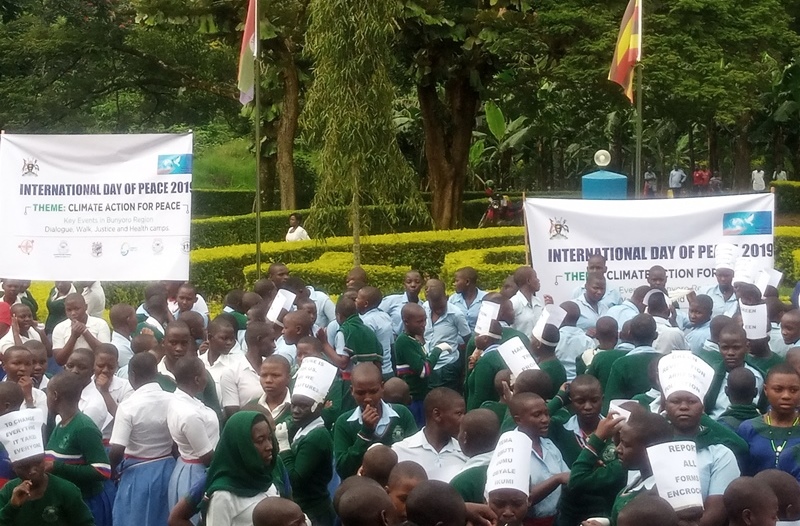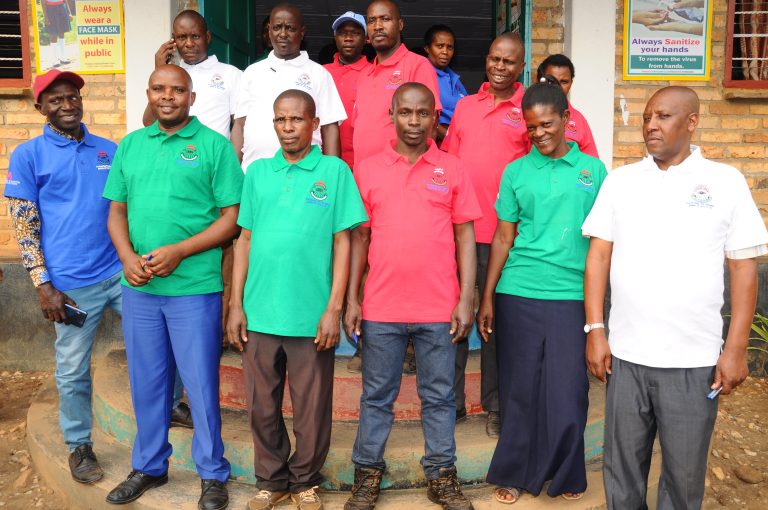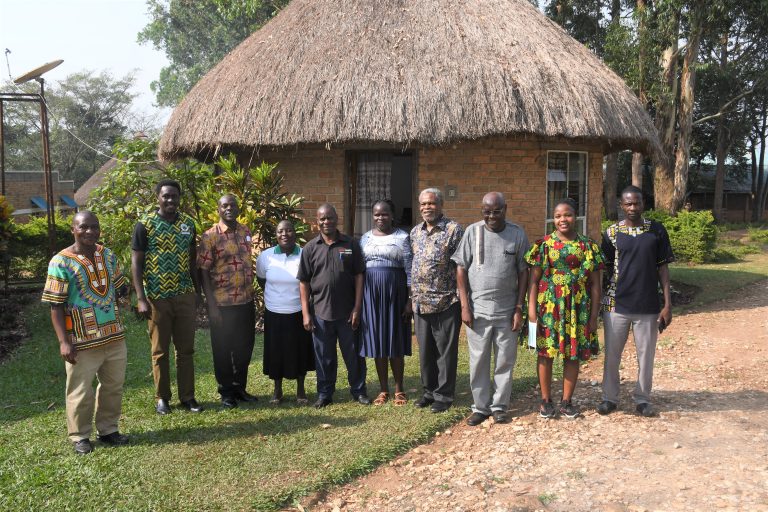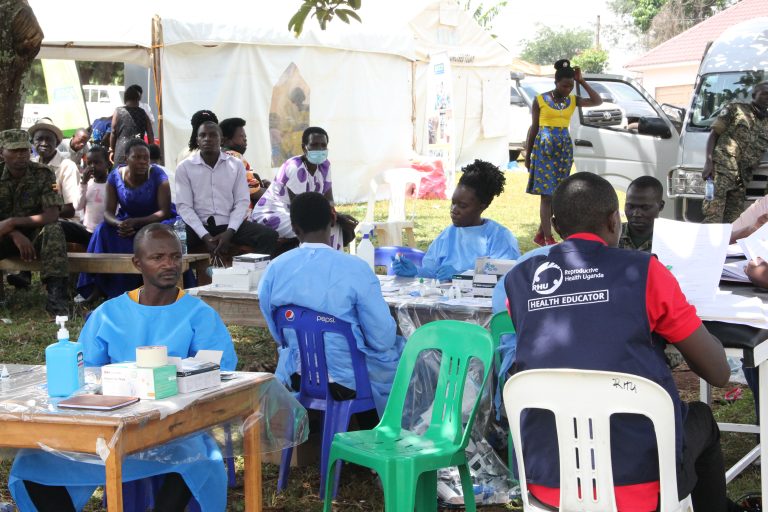URDT and ARU in conjunction with other stakeholders commemorate 2019 International Day of Peace.
Peace is one of the 5 result areas URDT works towards creating in communities. There are several interventions URDT conducts to facilitate the above. Every year the world celebrates the International Day of Peace (IDoP) and key actions are generated that inform the subsequent interventions. Every year URDT and African Rural University (ARU) join the rest of the world to commemorate the IDoP. This year, it was celebrated under the theme: Climate Action for Peace.
In Bunyoro Region, URDT together with other Civil Society Organizations and local governments marked the day with a series of events between 18th and 20th September 2019. The events include the Peace walk, dialogue, justice and health camps and blood donation in which over 1,228 people participated. The events were publicized on Kagadi Kibaale Community Radio (KKCR) and TV West in the Western Region, and Akabozi Kubbiri radio station and Radio One station in the Central Region.
The nexus between climate actions and peace is high; this touches people’s lives and rights directly in terms of access to clean and safe water, supply of oxygen, absorption of carbon dioxide, protection of wild life, changes in weather conditions, preservation of soils, regulation of the spread of air borne diseases, security and harmonious living in communities.
During the peace walk 2019, 4 natural resources and the nearby communities were visited. These include: Kangombe and Bugoma Forest Reserves, Muzizi River and the URDT Green Belt. People in these local communities were engaged in discussions.
| Key ideas from community members |
| Respondents views on the aspired state of natural resources and climate 1. Clean water sources and high water levels 2. Regenerating, thick and wide spread forests 3. Waste free forests, water sources and protected river banks 4. Adjacent communities consciously conserve and manage natural resources 5. Government authorities collaborating with local communities to manage natural resources sustainably |
| Respondents views on the current status of the resource 1. Contamination of water sources, forests, soils and other natural resources with non-degradable wastes 2. Trees are cut down for timber, charcoal burning leading to reduced rainfall and loss of biodiversity 3. Farming and human settlement activities are going on in forest reserves4. Reduced water levels in lakes and rivers, and increased water and air pollution5. Conflicts amongst key players and local communities about the management of natural resources |
| Respondents views on key action to revert the current status 1. Each individual to manage the natural resources and waste materials responsibly 2. Sensitization about and respect for demarcation of the forest reserves 3. Collaborative management of the resources through reporting and enforcement mechanisms 4. Government and development partners to priotize environmental protection programs such as establishing household echo gardens for indigenous tree species, alternative clean energy 5. Adequate punishment for the violators of agreed upon policies and bi-laws |







